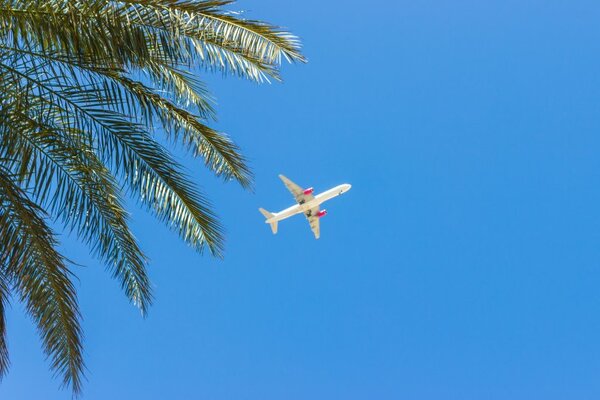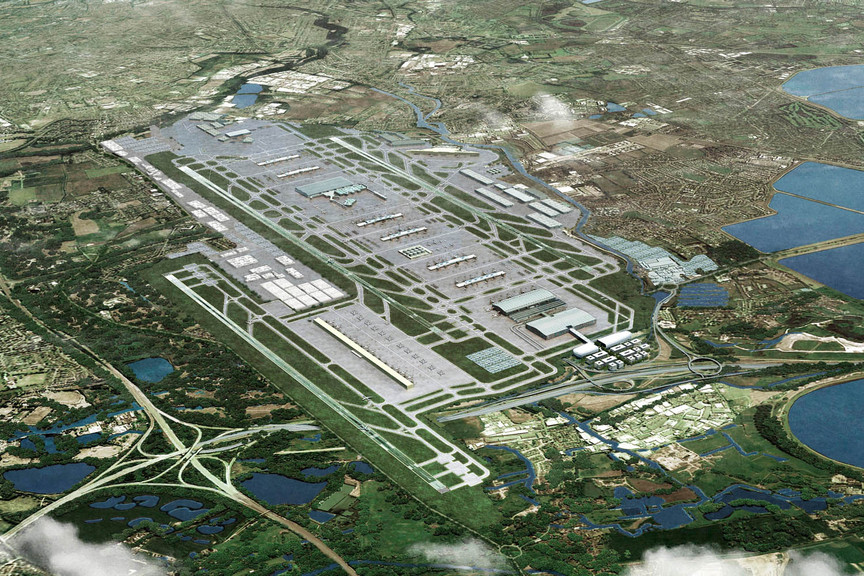The Big Question: Is it finally time to turn APD into an environmental tax?
 Ilaria Grasso Macola
Ilaria Grasso MacolaAir Passenger Duty (APD) was introduced as a "green" tax in the mid-90s, but is it time the proceeds go towards cleaning up travel’s operations rather than general taxation?
At TTG, we believe the exchange of ideas is key to driving progress throughout travel. Our Big Question series continues in November exploring whether APD should be put towards travel’s efforts to meet its climate and sustainability goals.
Introduced in 1994 as a “green” tax, levied on every flight departing a UK airport, the proceeds from APD have never actually been used to neutralise the environmental impact of air travel and have instead been funnelled into the general tax pot.
However, debate around APD resurfaced during the pandemic as the government sought to encourage a resurgence in intra-UK travel spend by halving the domestic rate of APD to £6.50 (now £7).
The move was hailed by carriers such as Ryanair, which has long called for the tax to be axed, but universally lambasted by environmentalists, who warned scrapping APD would likely encourage more domestic flying and drive up UK aviation’s carbon footprint.
But with the UK’s 2030 and 2050 environmental targets looming large, stakeholders from all sides of the debate are seeking ways to clean up aviation, such as by fostering production and adoption of sustainable aviation fuels, and developing electric and hydrogen-powered aircraft.
What do you think? Join in the debate in the comments section below, or email feedback@ttgmedia.com. Alternatively, head to one of TTG’s social media channels to get involved.
'Govt must support industry efforts to decarbonise'
Whether Air Passenger Duty, which is expected to raise nearly £4.5 billion from airlines next year, should become an environmental tax or not misses the bigger point.
Fundamentally, the UK’s aviation sector is a strategic asset, and should be supported to grow. We can only do this if we hit net zero and stay competitive. That means lowering the burden of APD, but also recognising we risk becoming an international outlier if the government doesn’t do more to help our sector to decarbonise.
The US is making sustainable aviation fuel (SAF) production cheaper through its Inflation Reduction Act. The EU is re-investing billions of euros raised from airlines through its carbon trading scheme directly into making SAF cheaper for airlines, as well as allocating billions into research and development.
These are two different approaches, but what matters is both are substantial, and will help their sectors capture the market for green aviation growth and keep costs down for their citizens.
Of course, the UK government invests in aviation and the co-investment arrangement through the Aerospace Technology Institute is a world-class model helping to keep the UK at the global top table.
It simply isn’t realistic either to expect all taxes from aviation to come straight back to the sector. However, the balance needs to be right.
As airlines contribute more each year in tax – and for their carbon through carbon trading schemes – the case for further support for UK SAF production, to reduce SAF costs and turbocharge research in and development of green tech, has never been stronger.
Tim Alderslade is chief executive of Airlines UK.
'APD should be reformed to disincentivise frequent flying'
Air travel is extremely bad for our climate. Yet flights are hardly taxed at all. Aviation doesn’t pay a single penny of tax on all the fuel it burns, and flights have the same zero VAT rating as essential items like baby clothes or a wheelchair.
And the only tax that’s paid on flights, Air Passenger Duty, isn’t designed to reflect the climate impacts of flights, or to encourage people to choose cleaner forms of transport.
Change is needed. APD should be reformed to disincentivise frequent flying, and the tax-take should be reinvested into low-carbon transport alternatives to flying, like rail travel.
Nearly half of people in the UK do not fly at all, or fly once per year, according to government figures. A small group of people who fly frequently are responsible for most of the emissions from air travel, yet we are all paying the heavy price for climate breakdown.
This is why APD should be replaced by a frequent flyer levy, which would place a higher tax burden on those people who fly more often, while ensuring occasional air travel remains affordable.
We also need to start properly taxing the most wasteful and excessive uses of air travel, such as private jets, which get away with paying the same rate of tax as passengers on standard flights – or no tax at all.
Polluting industries such as aviation need to start paying their fair share, and stop expecting to get a free ride at the expense of our climate. Let’s take that frequent flyer levy money and invest it in greener ways of travelling, whether domestically or internationally.
Rob Bryher is an aviation campaigner at climate action charity Possible.
'Why doesn't aviation pay its fair share now?'
Aviation wields a huge tax privilege – to the detriment of both the climate and the UK people. VAT is not applied to air tickets, and airlines do not pay duty on the fuel they burn. Every driver on the UK’s roads paid more in fuel duty the last time they filled up than any airline has ever paid.
While making APD a purely environmental tax is an interesting proposal, it shines the spotlight on the fact that the amount of revenue APD brings in for the government is nowhere near what simply paying VAT at 20% would bring in. Why does aviation not pay its fair share now?
Why does every other sector of the economy contribute to schools and hospitals, but not the aviation sector? Regardless, calling APD an environmental tax wouldn’t change anything.
Decarbonisation of the aviation industry is a monumental challenge that involves developing a new type of fuel, the infrastructure to create, store and transport that fuel, and new types of aircraft that can use the fuel. So why do it?
What we need is for the government to make the aviation industry pay for both its pollution and for its decarbonisation rather than giving it a free ride. There’s uproar about sewage companies polluting our rivers while paying huge dividends. Perhaps there should be uproar about airlines polluting our air while paying huge dividends too?
Increasing the price of fossil jet fuel by simply applying fuel duty to it would immediately encourage airlines to look for efficiencies, such as by flying in straight lines or reducing onboard weight.
They will also start looking at alternatives – sustainable aviation fuel in the short term, and electric and hydrogen aircraft longer-term. They would be incentivised to contribute less to climate change.
Matt Finch is UK policy manager at Transport and Environment.
'The "polluter pays" principle would be a fair solution'
It’s incomprehensible that aviation is so vastly under-taxed. There’s no tax on airline fuel, and no VAT on plane tickets. Aviation epitomises the inequality of climate change, where those who do the least to cause it suffer the most. The vast majority of the global population is unable to access air travel, but we all pay the price of rising emissions.
It therefore makes sense for high- polluting activities such as flying to be taxed and for that revenue to be used to mitigate the harmful effects. The “polluter pays” principle is a fair way to address the climate crisis.
Air Passenger Duty (APD) is the only tax applied to aviation in the UK, so the £4.5 billion it raises each year should be ring-fenced for carbon-reduction measures rather than going directly to the Treasury.
There are many things that can be done to decarbonise aviation, although many people – including our politicians – stop at “green” technology and alternative fuels. While these things have their place, they won’t bring aviation emissions down quickly enough to avoid the worst effects of climate change.
A truly climate- friendly and forward-looking transport system is one in which taxation applied to the highest polluters (aircraft) is invested in the lowest polluters (trains).
Facilitating a mass movement away from air travel is the only way to meaningfully and substantially reduce aviation emissions, and this would be far better done by investing in existing grounded transportation rather than the promise of future technology.
Anna Hughes is director of Flight Free UK.
The Big Question by TTG
The Big Question is a monthly feature from TTG taking on some of the burning issues facing travel through expert commentary, insight and debate. While it's not designed to be adversarial, it won't flinch from placing a spotlight on some often uncomfortable topics travel – like it or not – will one day have to reckon with.
- Is the 'S' word starting to put customers off?
- Is direct action targeting commercial travel ever justifiable?
- Is it time to rebrand the travel agent?
- Does travel have an ageism problem?
- Has travel added too much capacity for summer 2024?
- Can celebrity endorsements ever be truly responsible?
- Do women have equal opportunity to progress in travel?
- Should the cruise sector shout about lower prices?
- Is it time for a change of government?
- Has the pandemic changed peaks for ever?
- Is it finally time to turn APD into an environmental tax?
- Does all-inclusive value come at too high a price for the planet?
- Can cruise sail ahead of land-based breaks?
- Should travel companies still be selling captive animal attractions?
- Can aviation do more to help disabled travellers?
- Is there a future for private jets in travel?
- Should agents start charging for their time?
- Is it finally time to reform the Atol scheme?
- Should we be flying during a climate crisis?
Sign up for weekday travel news and analysis straight to your inbox

Ilaria Grasso Macola
Supplier Directory
Find contacts for 260+ travel suppliers. Type name, company or destination.

















